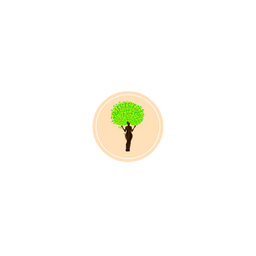When it comes to healthcare, many people are seeking alternative approaches to healing, ones that are rooted in ancient wisdom and traditions. One such approach is Traditional African Medicine (TAM), a holistic system that has been practiced for centuries across the African continent. TAM offers a unique perspective on health and wellness, focusing not only on the physical body but also on the mental, emotional, and spiritual well-being of individuals. In this article, we will explore the fascinating world of Traditional African Medicine and its potential benefits.
The Foundations of Traditional African Medicine
Traditional African Medicine is deeply rooted in the rich cultural heritage of Africa. It draws upon the wisdom passed down through generations and incorporates various healing practices such as herbal medicine, divination, spiritual healing, and ritual ceremonies. TAM practitioners believe that illness is not merely a physical ailment but rather a manifestation of an imbalance in the individual or the community.
Herbal medicine, a fundamental aspect of TAM, involves the use of plants and plant-based remedies to treat various ailments. African herbalists have an extensive knowledge of indigenous plants and their medicinal properties. They carefully select and combine herbs to create powerful remedies that address not only the symptoms but also the underlying causes of illness.
The Power of African Herbal Remedies
One of the most remarkable aspects of Traditional African Medicine is its reliance on the healing power of nature. African herbal remedies have been used for centuries to treat a wide range of conditions, from common ailments like colds and digestive issues to more complex diseases such as malaria and diabetes.
Unlike synthetic drugs, African herbal remedies are often free from harmful side effects and are believed to work synergistically with the body's natural healing processes. Each herb is carefully selected to target specific symptoms and support overall health. For example, the bark of the fever tree (Acacia xanthophloea) has long been used to treat fevers and malaria, while the African potato (Hypoxis hemerocallidea) is believed to have immune-boosting properties.
Furthermore, African herbal remedies are not limited to physical healing. Many herbs are also used to address emotional and spiritual imbalances, recognizing the intricate connection between the mind, body, and spirit. For instance, African ginger (Siphonochilus aethiopicus) is often used to cleanse and uplift the spirit, promoting a sense of well-being.
The Role of Divination and Spiritual Healing
In addition to herbal medicine, divination and spiritual healing play a vital role in Traditional African Medicine. Divination is the practice of seeking guidance from the spiritual realm to gain insight into the root causes of illness or other challenges. Diviners, also known as sangomas or babalawos, use various methods such as throwing bones, reading patterns in nature, or interpreting dreams to provide guidance and healing.
Spiritual healing involves rituals and ceremonies aimed at restoring balance and harmony within the individual or the community. These rituals often involve music, dance, chanting, and the use of sacred objects. They are believed to invoke the power of ancestral spirits and connect the individual with their inner self and the greater forces of the universe.
The Benefits of Traditional African Medicine
Traditional African Medicine offers a holistic approach to health and wellness, addressing not only the physical symptoms of illness but also the underlying causes and imbalances. By treating the individual as a whole, TAM aims to restore harmony and promote overall well-being.
One of the key benefits of TAM is its focus on prevention rather than just treatment. African herbal remedies and practices are often used to maintain good health and prevent illness before it occurs. This proactive approach emphasizes the importance of maintaining a healthy lifestyle, including a balanced diet, regular exercise, and stress management.
Furthermore, Traditional African Medicine recognizes the interconnectedness of individuals with their communities and the natural world. It emphasizes the importance of social support, community engagement, and a deep connection with nature. This holistic perspective promotes not only physical health but also mental and emotional well-being.
Embracing Ancient Wisdom for Modern Healing
As we navigate the complexities of modern healthcare, Traditional African Medicine offers a refreshing alternative that draws upon ancient wisdom and traditions. Its holistic approach to healing, rooted in the interconnectedness of mind, body, and spirit, resonates with those seeking a more balanced and natural approach to wellness.
While Traditional African Medicine should not replace Western medicine, it can serve as a complementary approach, providing additional tools and perspectives for individuals to explore on their healing journey. By embracing the wisdom of Traditional African Medicine, we not only honor the traditions of the past but also unlock the potential for a healthier and more harmonious future.


